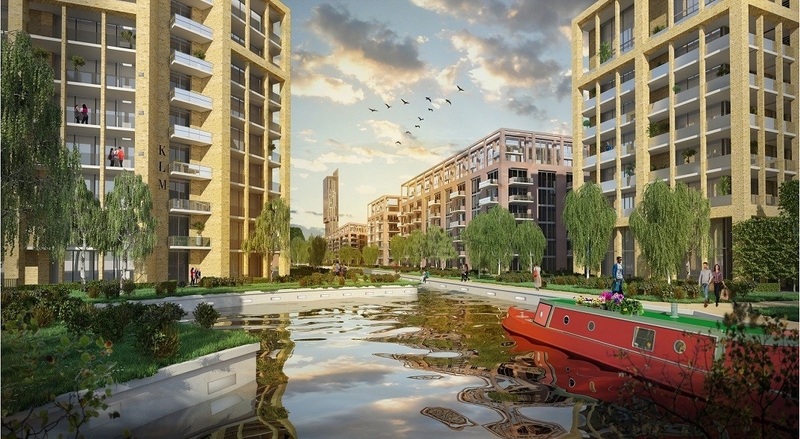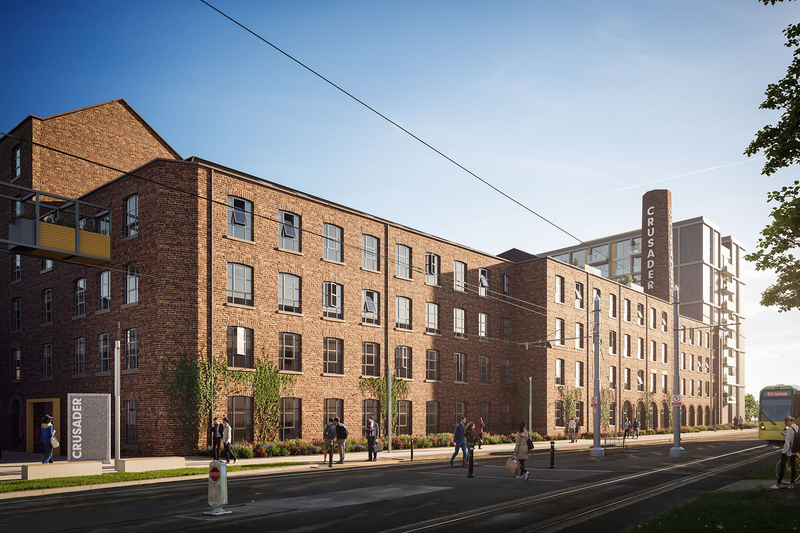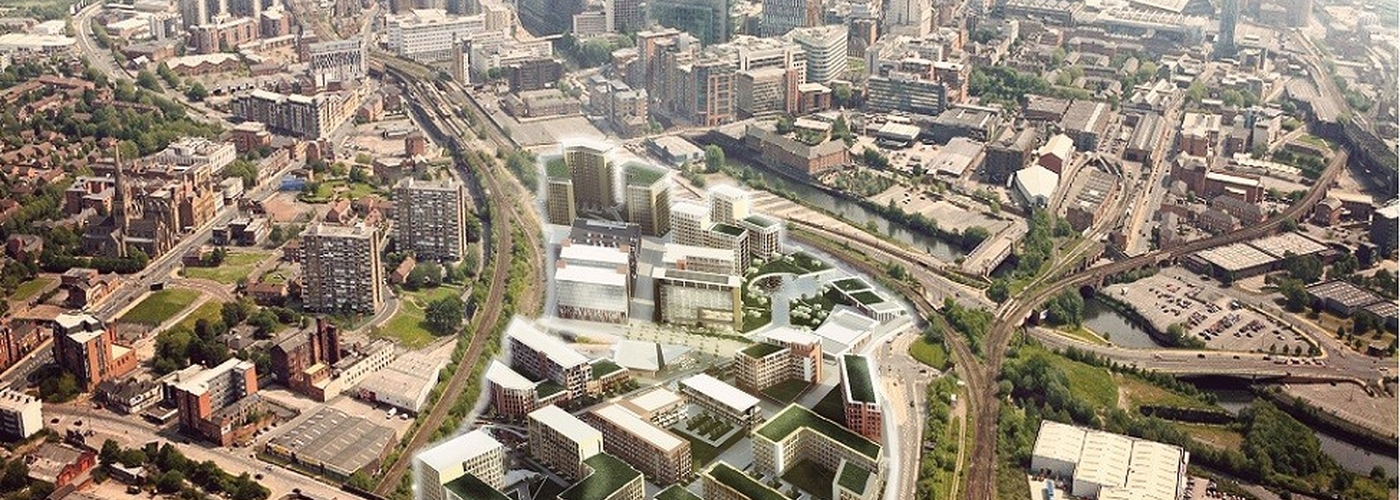Attempting to solve social travesties by deterring foreign ownership is wrong - Cllr John Blundell
An Englishman's home is his castle. We Brits have an obsession with owning our own homes and because of this we believe this dream should be tangible reality for everybody. This is why the ongoing housing crisis provokes intense feelings on all sides of the debate. It’s why the thought of an entire generation finding it difficult or even impossible to get a foot on the housing ladder fills us with such unease — it runs counter to our values.
Some are keen to blame our housing woes (along with almost everything else that is wrong with modern Britain) on foreigners. Outsiders buying up vast swathes of our housing stock to either rent out or leave unoccupied for eleven months of the year are supposedly responsible for our housing woes. This view is increasingly raising its head because people are angry at rising house prices and their city region evolving so rapidly.
But are foreign property owners friend or foe?
Greater Manchester is currently experiencing growth on a scale not witnessed since the industrial revolution, driven by this influx of people and money from across the globe. In a previous article, I discussed why this phenomenon was something to encourage rather than fight, but something more needs to be said about the adverse affects of this rapid economic upheaval.
It’s true that the additional demand pumped into the market by foreign buy-to-let investors pushes up house prices, but this is not necessarily a bad thing
We have all witnessed the terrible rise in the city’s homeless population over the last few years, the greater numbers of young people being forced to cohabit because of spiralling rents, and indigenous Mancunians having to move further and further out to maintain their standard of living. These are the sort of things that are, apparently, the fault of new investors in the city, the downside of the booming economy that their money has fuelled. But I’m not so sure that we should point the finger solely at them. And we certainly should not treat these things as an inevitable by-product of economic growth. I place the blame squarely at the feet of the national government and their ill-thought-out policies.
The pre-2008 boom is comparable only to the Roaring Twenties in its scale — and the resultant sharp downturn comparable only to the Great Depression — but under a Labour government the streets weren't lined with those who fell by the wayside during the growth. Rough sleepers existed, of course, as they have always done, but to nothing like the extent we see today. The pernicious effects of Universal Credit— replacing the system in which housing benefit was paid directly to landlords — and the steady casualisation of work are to blame. Attempting to solve social travesties by deterring foreign ownership would be the equivalent of putting a sticking plaster over an axe wound.

It’s true that the additional demand pumped into the market by foreign buy-to-let investors pushes up house prices, but this is not necessarily a bad thing. If we introduced policies aimed at discouraging this investment, then we would see all this capital go elsewhere, and a less prosperous city would see our population decline. The effects of draining capital and de-population are not something we should wish for. After containerisation and the closure of docks, Liverpool saw its population decline from over one million to roughly 400,000. It wasn't until the likes of Liverpool One and the city being awarded the title of European Capital of Culture that Liverpool returned to any noticeable economic growth. Meanwhile its inhabitants endured poor housing, a lack of work and poor health. Here in Manchester it wasn't much better, but the North is increasingly finding its feet. Liverpool too is now experiencing friction between growth and social upheaval.
I will always support development if the alternative is to leave the site derelict, serving no economic or aesthetic purpose
The counterfactual is to refuse the cash: you can no longer buy-to-let if you are not a Mancunian, or own a second home here, or invest here. The result is clear, a lot of the housing built in Greater Manchester, that is occupied by the people of this fair city, would not be built. Often brownfield sites are expensive to build upon, the land needs treating and considerable work; and they are often in areas not always deemed desirable by home hunters. The extra demand generated by foreign capital pushes up the value of each potential home and, once the combined price is high enough, that scrap bit of land all of a sudden becomes profitable to build on. The Mayor's housing fund was designed to help accelerate the process for sites not quite at this tipping point.
And this doesn't just happen in the city centre. Developers have been snapping up land for building homes adjacent to the Metrolink stations in the outer boroughs. These homes are being built for rent rather than sale and can often use foreign cash. The anger felt by local residents in these quiet, leafy villages in the foothills of the Pennines has been made clear to us local politicians. But I will always support development if the alternative is to leave the site derelict, serving no economic or aesthetic purpose. Fewer homes in any form is worse than homes for rent or for foreign holidaymakers. After all, it generates income for our council, and this much-needed cash goes towards our struggling public services.

The message is simple. The aim of the game is to build more homes, of all sizes, in all geographies, and at all price tags. And when house-building applications reach the planning committee, so long as they meet the predetermined criteria, permission should be granted, with every effort made to accelerate the build-out rate and fulfil the needs of residents in the area. National housing strategy is decided by the government. Similarly, the twin causes of the rise in homelessness — labour market conditions and welfare provision for the most vulnerable — are also under the control of government. And when it comes to the type of housing that is built, it is the public that direct the decision: markets are at our behest.
Our anger should be directed toward this Tory government and their inability to correct the housing market and build more of the homes that people need. Local councils can only do so much, and we should also think very carefully before we banish from this city one of our engines of economic growth: foreign investment. Doing so is unlikely to do much to alleviate the problems we all know Manchester (and the rest of the country) suffers from, and, by making us all poorer, it may even make them worse.
You might also like:
Dear Mr Burnham, Manchester needs more young professionals, not fewer
The truth about social cleansing in Manchester
About the author
John Blundell is a graduate of economics at the University of Manchester and was elected to Rochdale Borough Council at the age of 20. He has worked as a transport and development economist both in London and Manchester.
John campaigns on trying to change the life chances of young people through literacy and art.















